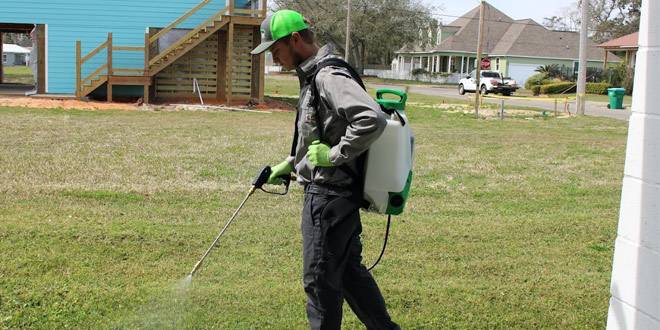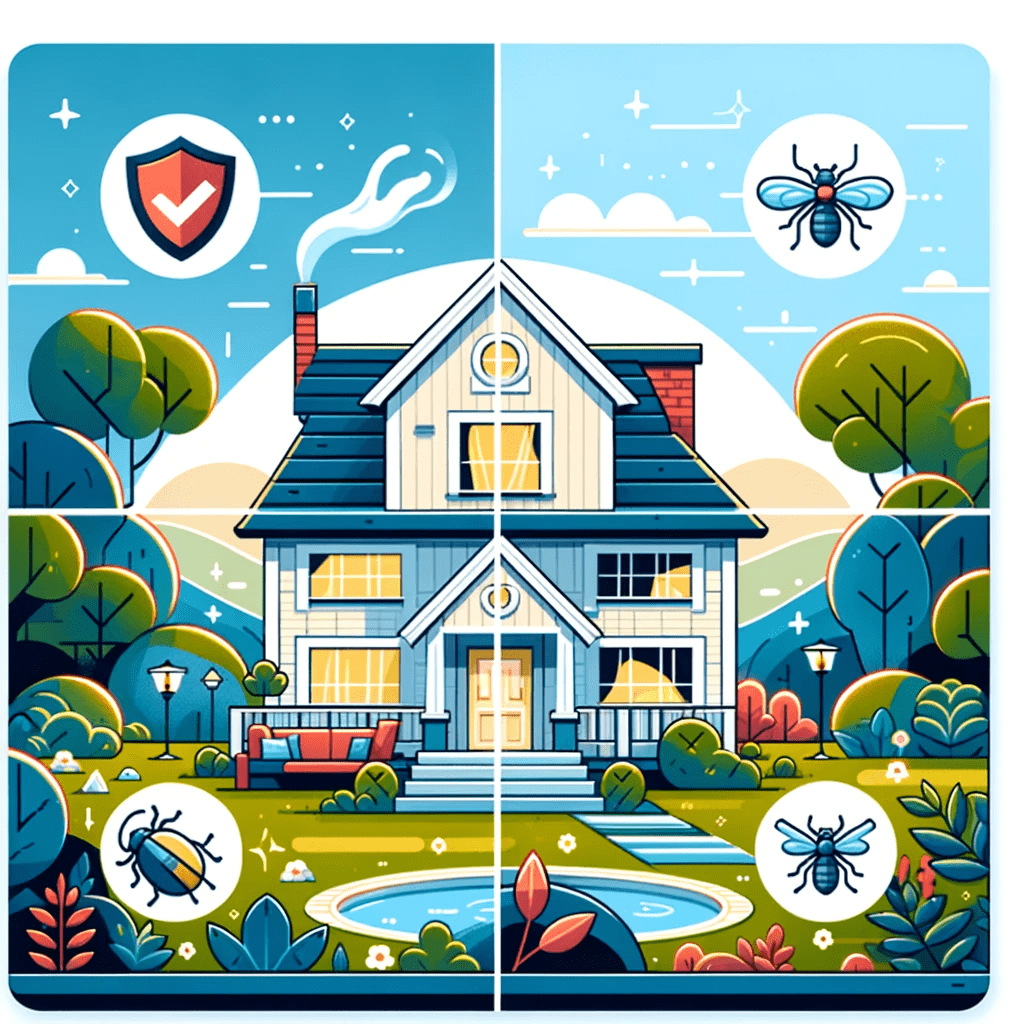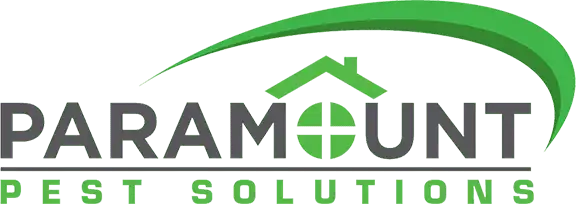
Table of Contents
| Section Title | Overview |
| Introduction: Gulfport’s Warm-Weather Pest Challenges | Overview of the seasonal pest challenges that Gulfport homeowners face in spring and summer. |
| Common Spring and Summer Pests in Gulfport | Describes the specific pests that are most active during Gulfport’s warm months and the risks they pose. |
| Early Signs of Pest Infestation | Lists the early signs of pest activity for various species so homeowners can catch issues before they escalate. |
| Integrated Pest Management (IPM): A Sustainable Approach | Details how IPM can be applied for long-term pest control that’s both effective and eco-friendly. |
| Preparing Your Home for Warm-Weather Pests | Practical tips for preventing pest entry and infestations during spring and summer. |
| Data Table: Peak Pest Activity in Gulfport by Month | Table showing months with the highest pest activity for each major pest species in Gulfport. |
| Fun Facts about Warm-Weather Pests | A collection of interesting facts about common pests in Gulfport. |
| FAQs: Common Questions about Seasonal Pest Control | Answers to frequently asked questions about spring and summer pest control. |
| Keep Your Gulfport Home Pest-Free with Paramount Pest Solutions | Concludes with a call to action encouraging readers to contact Paramount Pest Solutions for assistance. |
Glossary of Terms
| Term | Definition |
| Integrated Pest Management (IPM) | A proactive pest control approach focusing on eco-friendly prevention and minimal pesticide use. |
| Infestation | The presence of a large number of pests in a home or other area, posing potential harm to the structure or occupants. |
| Exclusion | A pest prevention method focused on sealing entry points and reducing access to food and water sources. |
| Overwintering | The process by which insects survive cold temperatures, often by hiding in insulated areas like attics or basements. |
| Vector | An organism, like a mosquito or tick, that transmits pathogens from one host to another. |
Introduction: Gulfport’s Warm-Weather Pest Challenges
Spring and summer bring increased warmth and humidity to Gulfport, creating the perfect conditions for pests to thrive. In this climate, residents encounter many types of pests, including ants, mosquitoes, roaches, and more. Unfortunately, these pests aren’t just nuisances; they also carry health risks and can cause damage to property. By learning about common seasonal pests and preparing for their activity, Gulfport homeowners can protect their homes and families effectively throughout the warmer months. This guide will cover the main pests to watch out for, early detection tips, prevention strategies, and available treatments.
Common Spring and Summer Pests in Gulfport
Gulfport homeowners face several types of pests each spring and summer. Below are the most common ones and the potential issues they bring.
- Ants – Various types of ants, including fire ants and carpenter ants, become highly active during spring and summer. Carpenter ants can cause structural damage by hollowing out wood, while fire ants are known for painful stings.
- Mosquitoes – With standing water and humidity, mosquito populations soar in Gulfport, increasing the risk of diseases like West Nile and Zika virus.
- Cockroaches – Cockroaches seek out food and water sources in homes, and they are particularly active in warm, humid months. They can carry allergens and bacteria.
- Ticks – Ticks latch onto people and pets, bringing health risks by transmitting diseases like Lyme disease and Rocky Mountain spotted fever.
- Stinging Insects (e.g., Wasps) – Wasps and other stinging insects build nests in eaves, decks, and sheds. They are territorial and can become aggressive if disturbed.
Understanding which pests are most active during spring and summer helps homeowners target prevention and treatment strategies for Gulfport’s unique climate.

Early Signs of Pest Infestation
Detecting pest activity early is key to preventing larger infestations. Here are some common indicators:
- Ant Trails or Mounds: Trails of ants along walls, or mounds around the yard, indicate ant activity.
- Mosquito Larvae in Water: Check for wriggling larvae in any standing water near your home; mosquitoes breed quickly in stagnant water.
- Cockroach Droppings and Egg Cases: Small, dark droppings or oval egg cases near kitchen cabinets or bathrooms are signs of cockroach presence.
- Ticks on Pets or Clothing: Ticks can latch onto pets or clothing, and their presence can indicate increased population in your yard or nearby foliage.
- Wasp Nests in Eaves or Trees: Wasp nests are visible on eaves or in sheltered areas like attics; their presence is a warning to stay cautious.
Inspecting your home regularly for these signs can help you spot pest activity before it becomes a larger problem.
Integrated Pest Management (IPM): A Sustainable Approach
Integrated Pest Management (IPM) is a long-term, eco-friendly pest control approach that combines preventive techniques with minimal pesticide use. Paramount Pest Solutions uses IPM principles to manage pests efficiently by:
- Preventing Pest Entry: Sealing entry points around windows, doors, and foundations to reduce the chances of pests entering your home.
- Reducing Pest Attraction: Limiting food sources, standing water, and clutter around your home, making it less attractive to pests.
- Routine Monitoring: Regularly checking areas prone to infestations, like basements, attics, and crawl spaces, to catch pest issues early.
- Targeted Treatment: Using only necessary treatments, applied specifically to targeted areas where pests are present, which reduces overall pesticide use.
IPM emphasizes prevention and thoughtful treatment choices for homeowners looking for effective, eco-friendly pest management solutions. Explore our IPM-based services here.
Preparing Your Home for Warm-Weather Pests
Effective pest prevention begins with good preparation. Here are practical steps to keep pests at bay as the temperature rises:
- Clear Standing Water: Mosquitoes breed in stagnant water. Empty any containers or areas where water collects, such as birdbaths, old tires, and gutters.
- Seal Cracks and Gaps: Pests like ants and roaches can enter through small cracks. Caulk cracks in foundations, windows, and doors to keep them out.
- Maintain a Clean Yard: Overgrown grass and piles of leaves attract pests. Regularly mow the lawn, and clear leaves and debris.
- Store Food Properly: Storing food in airtight containers and keeping surfaces clean deters ants and cockroaches from entering your home.
- Keep Trash Covered: Use lidded bins and keep trash tightly sealed to prevent attracting rodents, roaches, and other pests.
By taking these steps, you can protect your Gulfport home from common spring and summer pest infestations.
Peak Pest Activity in Gulfport by Month
| Pest Type | Peak Activity Months | Key Prevention Tips |
| Ants | April – September | Seal entry points, clean spills |
| Mosquitoes | May – October | Remove standing water |
| Cockroaches | March – October | Store food securely, reduce moisture |
| Ticks | April – August | Trim foliage, treat pets |
| Stinging Insects | May – September | Check eaves, remove nests early |
Note: Gulfport’s warm climate extends peak pest seasons longer than in other regions.
Fun Facts about Warm-Weather Pests
- Mosquitoes are the deadliest animals on Earth! They transmit diseases responsible for millions of human deaths every year.
- Cockroaches can hold their breath for 40 minutes and can live for a week without their heads.
- Ants are social insects with complex colonies, and some even farm aphids to ‘milk’ them for food.
- Ticks have been around since the time of dinosaurs! Their fossilized remains date back over 90 million years.
FAQs: Common Questions about Seasonal Pest Control
- What pests are most common in Gulfport during spring and summer?
Ants, mosquitoes, cockroaches, ticks, and wasps are highly active during Gulfport’s warmer months. - How can I prevent mosquitoes from breeding around my home?
Remove standing water from gutters, birdbaths, and containers to reduce breeding grounds. - Are there eco-friendly ways to manage pests in my yard?
Yes! Using IPM strategies like exclusion, routine inspections, and targeted treatments minimizes environmental impact. - Why are there more ants in my kitchen in the summer?
Ants are drawn indoors by food and water sources and are most active during warmer months. - How often should I inspect my home for pests?
Monthly inspections are recommended during peak pest seasons, especially if your home has experienced past infestations. - Do I need professional help if I spot a few pests?
It depends on the pest and quantity. Contacting a professional can prevent
small sightings from turning into major infestations.
Keep Your Gulfport Home Pest-Free with Paramount Pest Solutions
Preparing for seasonal pest challenges keeps your home comfortable and safe. With Integrated Pest Management strategies and professional pest control options, Paramount Pest Solutions can help you manage Gulfport’s spring and summer pests effectively. Contact us today to discuss personalized options and keep your home pest-free all season long!
